#anxiety problem
Text
Anxiety has been like a physical pain these past few days. The question of whether you should work through it or listen to it and stay at home eventually becomes moot when you're paralysed by the sheer weight of it and every single thought leads back to it and no thoughts are restful or bright and everything you feel is doom and everything you see and do just gives you more anxiety. And you feel like a weirdo and a failure because everyone says that once you manage to leave your house and get on with things and meet people you'll feel better but it doesn't get any better it just gets worse no matter how many Objectively Healthy or Fun things you do
#does anyone else feel like this#anxiety#anxiety problem#mental illness#i keep pushing myself to do stuff so i don't sit at home languishing but it just doesn't help
2 notes
·
View notes
Text
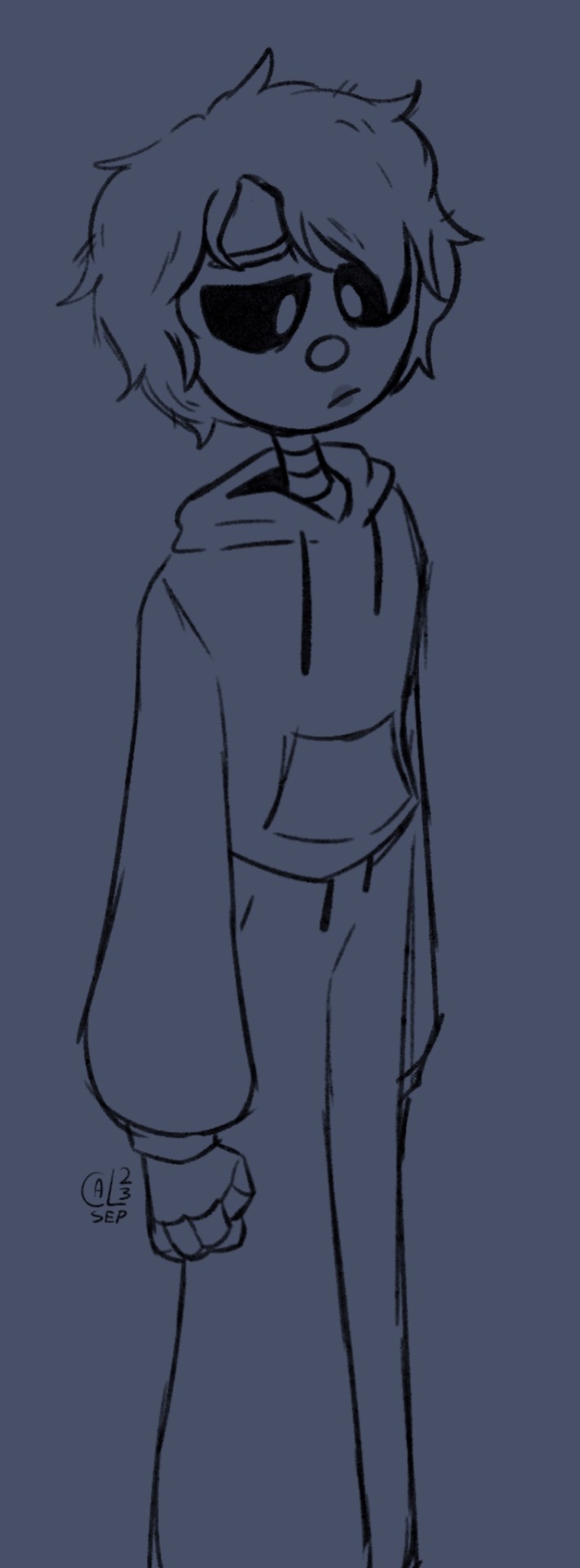
EVERYONE LOOK! Callisto did this super awesome art of my Oc, Nill a few days ago and I wanted to share it with everyone!
As always, feel free to ask about him! (Or any of my OCs~!)
#anxiety problem#Nill#trauma boi#my oc#not my art#starrabbitmedia#clownblr#star palace#star palace belongs to @starrabbitmedia
6 notes
·
View notes
Text
Omg omg omg. It all makes so much more sense when you realise it's not social anxiety but a fear of being perceived.
Why do you feel more comfortable with a long coat and a mask as opposed to summer clothes?
Why do you DESPISE taking pictures? Especially if it's someone else and not you taking them.
Why do you feel like you have to stop doing whatever it was you were doing when someone passes by?
Why don't you want to tell anyone how leisurely you go about your day, taking a nap, going for a snack, sitting on your phone playing games etc. because you know they will comment on it and even though it's not negative or mockery it's still feels like you've been perceived?
Why can't you make eye contact? Why can you do it only if the other person is looking away but the second when they look at you you stop listening and when you're the one speaking you can't bear to look at them because you know their eyes are on you and they are perceiving you?
Why don't you want to dress excessively or wear nicer clothes? Because you will stand out
People mistake you for shy because you don't speak often, but it's really the fear of drawing attention to yourself more than it is the things you actually say, isn't it?
Why do you hate overpopulated areas even when no one is speaking? BUT you still feel more comfortable when more than one person is in the room (but not too many!) so that the burden of being perceived is directed on someone else and you can safely lay back just observing the scene.
It's all a defence mechanism
#autism#audhd#actually autistic#autistic things#actually audhd#adhd#actually adhd#adhd problems#neurodivergence#neurodivergent#neurodiversity#social anxiety#anxitey#fear of being perceived
6K notes
·
View notes
Text
Anxiety Disorder: Signs, Symptoms and Coping Strategies | Solh Wellness
Anxiety is a normal stress response, but when it becomes a problem in your daily life, it's time to seek help. Anxiety manifests itself in various ways and affects people of all ages and socioeconomic backgrounds. Recognizing physical and emotional anxiety symptoms is essential for seeking help and learning how to manage your symptoms. This blog will discuss the most common anxiety symptoms as well as how to deal with them.

Anxiety Physical Symptoms:
Many physically noticeable symptoms of anxiety might be challenging to ignore. The following are a few of the typical physical signs of anxiety:
Muscle Tension: When your muscles are tense, you may have pain or soreness in your neck, shoulders, or back.
Nausea: Anxiety might make you feel queasy, which can cause you to lose your appetite or have an upset stomach.
Sweating: Even in cool climates or in the absence of exercise, anxiety can result in profuse perspiration.
Heartbeat: Anxiety can make your heart beat quickly, causing palpitations or a tightness in your chest.
Shortness of Breath: Anxiety can make it difficult to breathe, which can make you feel claustrophobic or like your chest is tightening.
Headaches: Tension headaches, migraines, or other types of headaches may be brought on by anxiety.
Anxiety's Emotional Symptoms
Anxiety can also be distinguished by emotional symptoms, which can be equally challenging to manage. The following are some of the most common emotional symptoms of anxiety:
Irritability: Anxiety can cause you to worry excessively, even about trivial matters, leaving you feeling overwhelmed or helpless.
Excessive Worrying: Anxiety can make you irritable or easily agitated, which can lead to conflict in your relationships or at work.
Restlessness: Anxiety can cause restlessness or fidgetiness, making it difficult to focus or relax.
Fear: Anxiety can make you feel afraid or panicked, which can lead to feelings of dread or terror.
Insomnia: Anxiety can make it difficult to fall and stay asleep, resulting in fatigue and exhaustion.
Avoidance: Anxiety can cause you to avoid situations or people that make you feel anxious, which can lead to social isolation or loneliness.
Anxiety Management
If you have any of these symptoms, you should seek medical attention right away. Anxiety disorders can be treated in a variety of ways, including:
Professional Support: Therapy can teach you coping skills such as relaxation techniques, cognitive-behavioral therapy, and exposure therapy.
Medication: Antidepressants, anti-anxiety medications, and beta-blockers can help alleviate anxiety's physical symptoms.
Changes in Lifestyle: Exercise, meditation, and yoga are all stress-reduction techniques that can help you manage your anxiety.
Self-Care: Making self-care activities a priority, such as getting enough sleep, eating a healthy diet, and participating in enjoyable activities, can help you feel more balanced and relaxed.
Social Support: Connecting with others who understand your situation can help you feel less isolated and give you a sense of community.
Conclusion
Recognizing anxiety symptoms and seeking professional help can help you learn coping strategies and improve your overall quality of life. If you are suffering from anxiety, seeking professional help may be your best option. Solh Wellness strives to replace stress, sadness, and loneliness with joy and peace. Our comprehensive tools and solutions are designed to meet that need by bringing a judgement-free and like-minded community together under one roof. You can also seek the best solutions from mental health professionals.
1 note
·
View note
Text
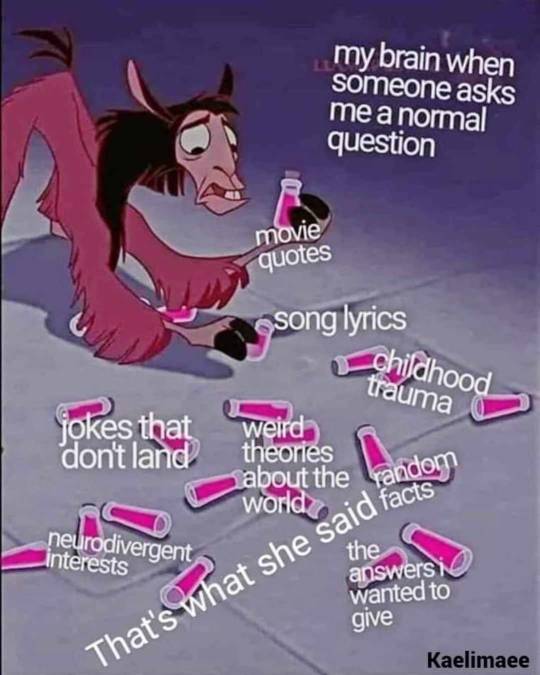
#autistic things#autistic life#autism#actually autistic#neurodivergent#neurospicy#funny memes#memes#social anxiety#adhd brain#adhd#adhd problems#funny
6K notes
·
View notes
Text
To any disabled person undergoing tests to find What's Wrong: I hope your results come back the way you hope and that you receive the help you need. I hope you are not denied care, I hope you are taken seriously even after this, and I hope that you will be taken care of compassionately
#disability#currently going through something like this for myself and while i doubt there's anything 'wrong' i still did it#people are always weird about people who are disappointed or devastated about 'normal results' but...#...it's because normal results don't mean much when you still have the issue at hand...#...if my test came back that my back is physically normal that doesn't indicate that i don't have back pain does it?#because i am still in pain so often even if i have a 'physically normal' back...#...just as an example but i don't think a lot of abled people 'get it'#also like... if your tests are coming back 'normal' every time that might give your care providers pause...#...and they might just start infantilizing you or treating you like a hypochondriac...#...'are you SURE [problem] isn't just anxiety?' 'are you SURE you're actually experiencing [x] or are you exaggerating it?'
5K notes
·
View notes
Text
Understanding the Relationship Between Anxiety and PTSD
Understanding the Relationship between Anxiety and Post-Traumatic Stress Disorder (PTSD)
Anxiety and Post-Traumatic Stress Disorder (PTSD) are both mental health conditions that can have a significant impact on an individual's quality of life. While they are distinct conditions, they are also closely related, and many people with PTSD experience symptoms of anxiety.
youtube
What is PTSD?
PTSD is a mental health condition that can develop after someone has experienced or witnessed a traumatic event. PTSD is characterized by symptoms such as flashbacks, nightmares, and feelings of avoidance. PTSD can also cause physical symptoms such as increased heart rate, sweating, and difficulty sleeping. PTSD can be debilitating and affect an individual's ability to function in daily life and their relationships.
How are anxiety and PTSD related?
PTSD is a type of anxiety disorder, and people with PTSD often experience symptoms of anxiety. Research suggests that up to 80% of individuals with PTSD also have an anxiety disorder. PTSD can lead to ongoing feelings of fear and anxiety, which reminders of the traumatic event can trigger. People with PTSD may experience high levels of anxiety, worry, and fear that continue long after the event is over. Additionally, people with PTSD are at risk of developing anxiety disorder that precedes trauma.
Treatment for Anxiety and PTSD
Both anxiety and PTSD are treatable conditions. Treatment options for anxiety disorders and PTSD include therapy, medication, and self-care practices. Cognitive-behavioral therapy (CBT) is a common form of therapy that can be effective in treating both conditions. Medications such as selective serotonin reuptake inhibitors (SSRIs) can also be used to treat symptoms of anxiety and PTSD.
It's important to note that anxiety and PTSD can occur together, so it's important to seek help from a mental health professional who can provide an accurate diagnosis and appropriate treatment. With proper diagnosis and treatment, individuals can improve their mental health and regain control of their lives.

Seek Professional Help
One treatment option to treat anxiety and panic attack is Cranial Electrotherapy Stimulation (CES), which involves using a device that delivers a small electric current to the brain. CES has been shown to be effective in reducing anxiety, as well as other mental health conditions such as depression and insomnia.
To learn more about CES and how it may be able to help overcome anxiety and panic attack, you can visit the CES Relief website and contact them for more information. A licensed professional practitioner can also be a valuable resource for information about CES and how it may help you.
CES Relief
1875 N Lakes Place
Meridian, ID 83646
(208) 846-8448
Disclaimer: This is not professional advice and is simply an answer to a question; if professional advice is sought, contact a licensed practitioner or doctor in the appropriate administration.
#Anxiety#Anxiety Cure#Treatment For Anxiety#Anxiety Problem#Natural Treatment For Anxiety#Anxiety Without Medication#CES Device#CES Relief#Electrotherapy Help Anxiety#Remove Anxiety Permanently#Control Anxiety#Anxiety Treatment#TMS vs. CES vs. tES#Mental Health Treatment#Mental Health Cure#Mental Health#PTSD#ptsd treatment#Youtube
0 notes
Text
Nobody is afraid to lose me. I never mean that much.
#bpd#actually bpd#mental health#bpd shit#bpd shitposting#actually borderline#bpd meme#bpd problems#mental illness#autism#bpd mood#autistic#bpdmemes#borderline personality problems#actually mentally ill#bpd favorite person#bpd vent#anxiety attack#bpd fp#memes
7K notes
·
View notes
Text
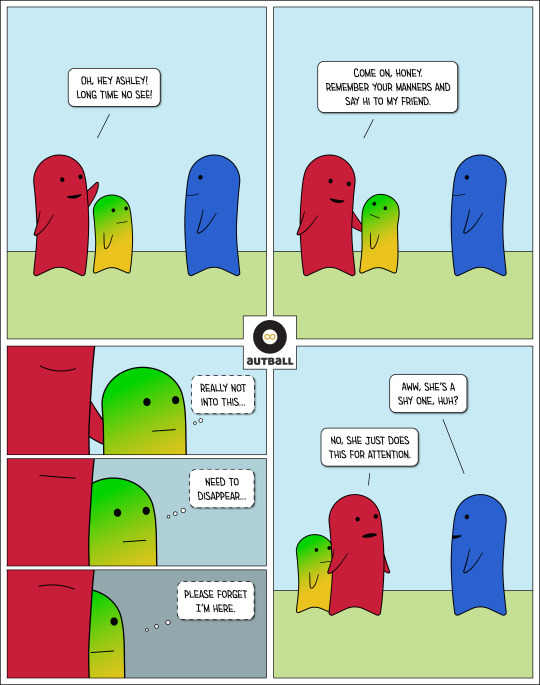
If your efforts to avoid attention only brought you more attention, were you ever really trying to avoid it at all?
(Yes. Yes I was.)
#autistic#actually autistic#autism#autistic problems#autistic experiences#autistic feels#exposure anxiety#situational mutism
1K notes
·
View notes
Text
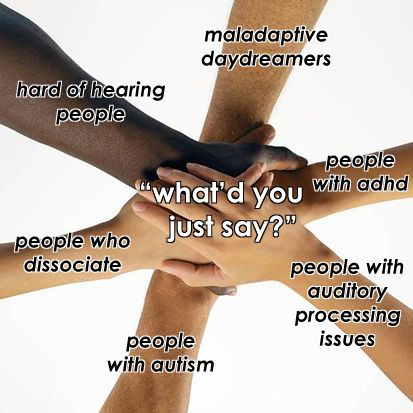
#me asf#auditory processing problems#mental health#self love#infp#self improvement#anxiety relief#be yourself#adhd
8K notes
·
View notes
Text
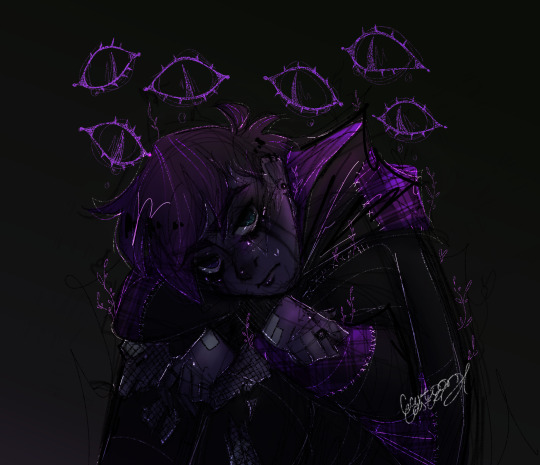
..•Perception Distorted•..
#casart#sanders sides#virgil sanders#anxiety sanders#heeyyyyy wowie some good ol' virge art<3#kinda getting some feelings out w this one coz my depression and anxiety have not been great#shit really piling on and giving me a lot of distorted thoughts and dissociative episodes haha#anyways time to give my problems to my boy!! ah yes healthy coping uwu
439 notes
·
View notes
Text
Thinking about how special interests and hyperfixations are not so much an "unhealthy opsession" as they are a means to calm yourself down.
Is it really obsessive to think about your favourite show, movie, subject etc. all day every day and not being able to function properly? Or is it your brain recognising your anxiety from being forced to socialise and being thrown into loud uncomfortable spaces, and creates images in your head, reminding you of the thing you love so that you can calm down.
It's not unhealthy. Your brain is literally fighting to prevent an anxiety attack.
#unfortunately#the anxiety is there 24/7#hyperfixation#special interest#autism#autistic things#actually autistic#audhd#actually audhd#adhd#adhd problems#actually adhd#neurodivergence#neurodivergent#neurodiversity
2K notes
·
View notes
Text
7 effective ways to Manage Anxiety | Solh Wellness
Anxiety is a natural stress response, but for some people it can be overwhelming and debilitating. It is a common condition that affects millions of people worldwide. Anxiety is characterised by excessive fear, worry, and physical symptoms such as muscle tension, nausea, and sweating.
While anxiety is a normal and natural response to stressful situations, it can become a problem when it interferes with your daily life. Anxiety disorder patients frequently experience excessive and persistent worry and fear that is out of proportion to the actual situation. Anxiety can also lead to avoidance behaviours, making it difficult to carry out daily tasks.
There are, thankfully, numerous effective anxiety coping strategies. Here are some methods for dealing with anxiety:
Recognize and combat negative thoughts: Anxiety is frequently fueled by negative self-talk and unhelpful thought patterns. It can be beneficial to identify negative thoughts and challenge them with more realistic and positive alternatives.
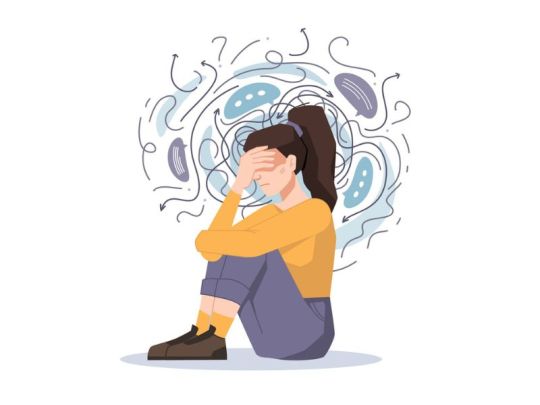
Practice relaxation techniques: Deep breathing, progressive muscle relaxation, and mindfulness meditation are all relaxation techniques that can help to reduce anxiety symptoms while also promoting feelings of calm and relaxation.
Exercise on a regular basis: Exercise is a powerful tool for reducing anxiety symptoms. Physical activity on a regular basis can help to reduce stress and tension, improve mood, and promote relaxation.
Avoid caffeine and alcohol: Caffeine and alcohol can aggravate anxiety symptoms, so limit or avoid them if you suffer from anxiety.
Self-care: Activities that promote relaxation and well-being, such as taking a warm bath, getting a massage, or spending time in nature.
Seek professional assistance: If your anxiety is interfering with your daily life, you should seek professional help. Anxiety symptoms can be managed by a mental health professional through counselling, therapy, or medication.
Get social support: It is critical to have a network of friends and family who can offer emotional support and encouragement. Speaking with someone about your worries and concerns can be a very effective way of reducing anxiety. Consider joining a support group or searching for online communities of people who have dealt with anxiety in the past. A sense of belonging and connection can reduce feelings of isolation while also improving overall well-being.
Conclusion: Although anxiety can be a difficult condition to live with, there are numerous effective coping strategies. You can learn to manage your anxiety and live a full and fulfilling life by practising self-care, identifying and challenging negative thoughts, and seeking professional help. Keep in mind that you are not alone; there is hope for anxiety relief.
0 notes
Text
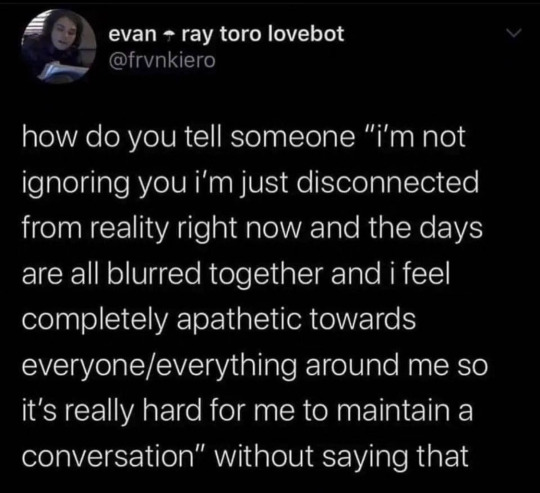
#adult adhd#actually adhd#living with adhd#actually autistic#overwhelmed#autistic culture#autistic#adhd problems#sensory sensitivity#social anxiety#neurodivergent
2K notes
·
View notes
Text

#childhood trauma#trauma memes#bpd life#actually bpd#bpdmemes#bpd feels#bpd blog#bpd memes#bpd mood#bpd problems#bpd#borderline blog#borderlinememe#mental illness#mental illness memes#mentalillnessmemes#mentally ill#mentally ill memes#depressing memes#anxiety memes#memesdaily
8K notes
·
View notes